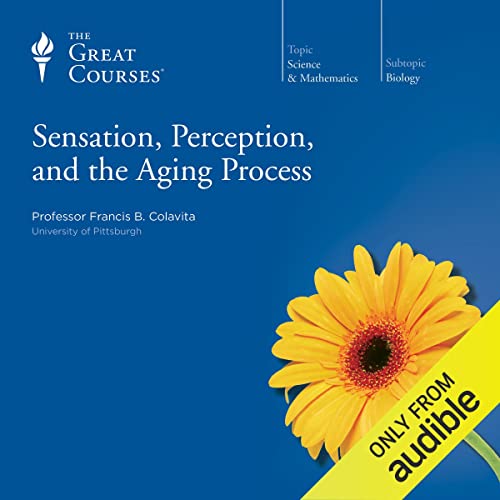12h 13m
Published by The Great Courses.

12h 13m
Published by The Great Courses.
Why is it that we react to the world the way we do, not only in ways similar to other people, but in ways often dramatically different, as well, no matter which of our senses is involved? And how is it that the physically adventurous young person you remember being - whose greatest passion was riding the scariest roller coaster imaginable - somehow grew into an adult whose stomach begins to churn nervously at even the thought of such a ride? The answer, of course, is that each of us - whether a different person or a more recent model of ourselves - isn't reacting to the same world at all. For though the physical world we occupy may be identical, the reality we experience is very different.
The truth is, our various sensory systems can be altered over time, their acuity changing in response to aging or injury, life …
Why is it that we react to the world the way we do, not only in ways similar to other people, but in ways often dramatically different, as well, no matter which of our senses is involved? And how is it that the physically adventurous young person you remember being - whose greatest passion was riding the scariest roller coaster imaginable - somehow grew into an adult whose stomach begins to churn nervously at even the thought of such a ride? The answer, of course, is that each of us - whether a different person or a more recent model of ourselves - isn't reacting to the same world at all. For though the physical world we occupy may be identical, the reality we experience is very different.
The truth is, our various sensory systems can be altered over time, their acuity changing in response to aging or injury, life experiences, evolving personalities, and other factors. And in this series of 24 fascinating lectures, an acclaimed teacher and psychologist gives you a bio-psychological perspective on both the way we humans navigate and react to the world around us and an understanding of the ways in which that process is ever-changing.
Rich in science, potent examples, and anecdotes, the lectures explore subjects like how we see, hear, smell, taste, or touch; keep our balance, and understand exactly where we are in space. You'll learn about motor memory, the ways in which our bodies process pain, and even why our taste in food changes over time.
Whether exploring the complex structures of the brain or inner ear, or using humorous personal stories to illustrate a point, Professor Colavita delivers a course that informs, entertains, and even prepares us for the changes that lie ahead.